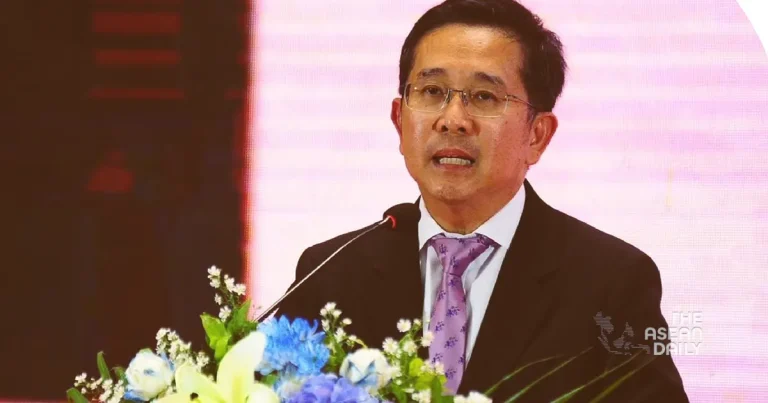10-7-2024 (BANGKOK) Somphote Ahunai, once a billionaire whose net worth soared above US$4.8 billion just two years ago, has seen his fortune plummet below $600 million after a series of costly and ambitious efforts to diversify Energy Absolute Pcl, one of Thailand’s largest renewable power producers, into a Tesla-like transport specialist.
Energy Absolute’s shares posted a staggering 51% decline in June, marking a record monthly drop that slashed Somphote’s wealth significantly, according to the Bloomberg Billionaires Index. Despite an 11% rebound this month, following the 57-year-old tycoon’s fervent defense of the company’s financial health, the stock has still lost a remarkable 70% of its value this year – the biggest decline among nearly 1,400 companies in the MSCI Asia Pacific Index.
The dramatic tumble comes after several years of Somphote’s efforts to emulate aspects of Elon Musk’s Tesla Inc., creating an integrated business spanning electricity generation, battery production, car manufacturing, and charging-point installation. Somphote also invested heavily in the assembly of electric trains, ferries, and buses, borrowing extensively to fund his ambitious dreams.
“All the efforts and bets on the EV industry are in serious doubt with ongoing price wars and oversupply,” said Tiwa Shintadapong, president of the Investors Association of Thailand. “Energy Absolute’s earnings slump and negative cash flow have really diminished confidence among investors.”
In a bid to clarify the company’s condition and calm shareholders and creditors, Somphote called urgent press conferences on consecutive days last week. He defended Energy Absolute’s aggressive push into battery production and transportation while asserting that the company has sufficient cash flow to service its 37 billion baht ($1 billion) debt.
Energy Absolute, founded as a palm oil and biodiesel specialist, spent billions to build production facilities for batteries, buses, ferries, and trains under the Mine brand, aligning with the Thai government’s initiatives to cut emissions.
“EVs and the battery business are tougher than we anticipated, but we still have strong belief in their future,” Somphote said during one of the press conferences, urging investors questioning the company’s survival to examine its fundamentals and market potential. He revealed that his stake in the company dropped to slightly over 30% from about 40% after the stock’s slide forced a foreign bank to sell some of his pledged shares to repay loans.
In the first quarter, Energy Absolute’s profit plunged by 62% from a year earlier, partly due to the end of government subsidies for electricity output at one of its solar power plants. EV sales during the three months through March also declined due to lower demand for its electric buses.
Somphote assured that cash flow would swing into a surplus this year, as most major investments in electric buses and trucks have been completed.
While Energy Absolute recorded a free-cash-flow shortfall of 7.3 billion baht in 2023, up from 1.7 billion baht a year earlier, its power division – with a generating capacity of 664 megawatts – remains robust, generating annual cash flow of at least 4 billion baht through 2026, according to Kasikorn Securities Co analyst Suksit Wongwanich. However, the company’s EV business still faces challenges with rising competition, Wongwanich noted in a July 4 report.




